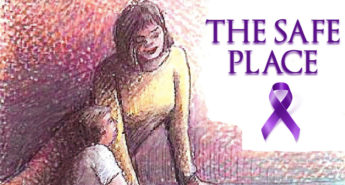 May is a beautiful time of the year. The trees have budded out, the flowers spring up, and the harshness of winter is over. As there is a harshness of winter weather, so there is a harshness in the lives of our children and youth around the world; mental health issues.
May is a beautiful time of the year. The trees have budded out, the flowers spring up, and the harshness of winter is over. As there is a harshness of winter weather, so there is a harshness in the lives of our children and youth around the world; mental health issues.
May is Children’s Mental Health Awareness month. Mental Health Awareness month was created to help alleviate the stigmatization that goes with mental health. There are many unknowns about mental health, but there have been many hurdles crossed as more information comes to light to help those who struggle with mental health issues.
Now is a very relevant time to start talking about mental health issues in our adolescents. This past year has taken a toll on almost everyone around the globe with the corona-virus pandemic. People have been isolated in their homes and quarantined from their friends, family, and those that they hold nearest and dearest to them. People had to give up their hobbies, school, extracurricular activities, and so much more. The mental toll this virus has taken has yet to be fully seen.
Some of the children that have been isolated at home during this pandemic have had to endure more mental/emotional, physical, and/or sexual abuse. It has been shown that when children experience these types of abuse, it has lasting effects on their mental well-being. Children that experience these types of abuse can sometimes digress, or stop maturing mentally, causing them to be stuck in a child’s mental state for a long time. Some may never grow out of it.
The adage, “life is what you make of it,” or “just deal with it,” is an old way of looking at mental health. Adolescents need to know that it is alright to talk to someone about what is going on inside their minds. Different adolescents will express what they feel in different ways; some may turn to food to comfort them, some may become reclusive, others turn angry and violent, and way too many try to commit suicide.
In 2017, there were 6,200 suicide deaths among adolescents aged 15-24 years old in the United States. One life is too many; this number is detrimental to our future. Suicide is the second leading cause of death among teens in the USA. Risk factors include psychological disorders, major depression, bipolar disorder, or drug use. Risks can also include a family history of depression or mental health disorders, losing a parent to divorce or death, physical or sexual abuse, lack of a support system, being bullied, or feelings of isolation.
Teen suicide can be prevented by knowing what to look for and ways to help. Some signs include previous suicide attempts, warnings of suicidal thoughts, making final arrangements, or talking about death a lot. When you know someone is suicidal, make it more difficult for them to commit harm to themselves; make sure all medications are secured, remove guns from at-risk teen homes, you could also hide knives or other sharp objects. Please encourage them to seek help. They can talk to professionals and get medication to assist them in dealing with what they are going through.
There are multiple causes of mental health issues with our teens, from pressure from family to previous abuse or being bullied to dealing with sexual orientation. There are many reasons teens start to feel depressed. As a society, we all have to do our part to help these adolescents find their way. You may disagree with what they are saying or expressing; you may not like what they have to say, but sometimes even just a listening ear without judgment is all they seek. If you do not know how to listen and deal with what they tell you, please do not be harsh or unkind to them. Instead, find someone they can talk to that can help them, or you may even find someone to talk to as a family to help everyone make it through what is going on. Let’s reach out to our kids and teens. Let’s embrace them and give them the love and support they need. Let’s help their flowers bloom and make a brighter future for their tomorrows.
Always know, help is available, and you do not have to be alone. If you or someone you know is thinking about suicide, please call the Suicide Prevention Lifeline at 1.800.273.8255.
If you are a victim of domestic abuse, you can contact The Safe Place by calling 501.354.1884 or our Perry County office at 501.889.2030. Our domestic abuse hotline is 1.888.554.2501.




Leave a Reply